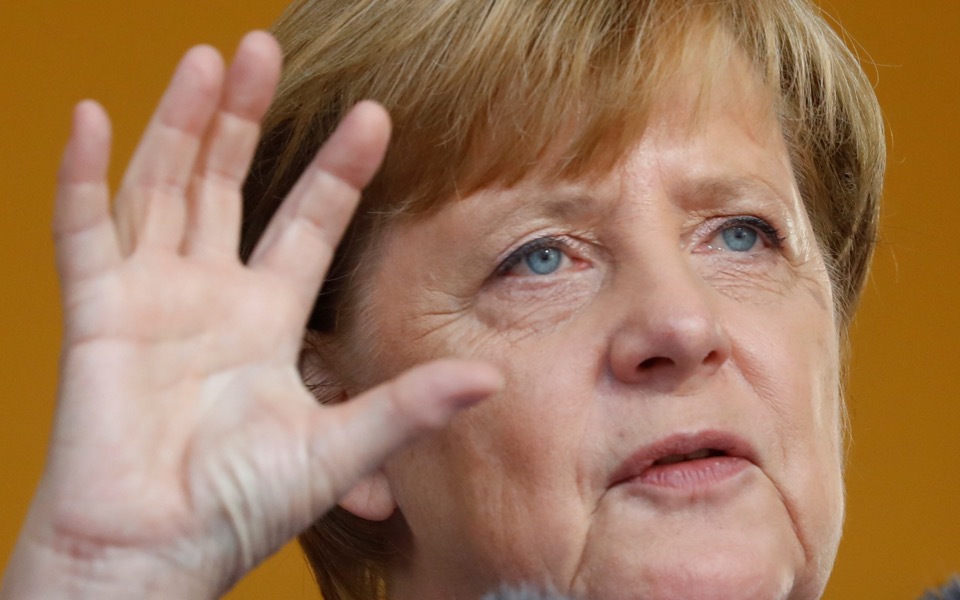Germans vote, Greeks wait

If the polls are accurate and Alternative for Germany (AfD) comes third in the German elections this Sunday, this will have a negative impact on the European Union and on Greece especially.
The nationalist right-wing party will not be part of the next government, as no one wants it as a partner; its impact, however, is already decisive, pushing the whole political scene to the right. It is quite likely that it will elect lawmakers to the Bundestag, and if it manages to win over 12 percent of Sunday’s vote, which is not impossible, AfD’s influence will be even greater.
The German economy is hardly in crisis. The immigration issue, also, is relatively subdued, thanks to all political parties’ silent approval of the walls erected by Hungary, Austria, Bulgaria and other countries.
Despite this, the election campaign showed that the fear prompted by the existence of party to the right of Angela Merkel’s Christian Democrats (CDU) and Horst Seehofer’s Christian Social Union (CSU) was in itself enough to influence many parties’ policies on the economy and immigration.
If the AfD achieves the results suggested by polls, the more conservative voices in the CDU and CSU will be strengthened further, as will Merkel’s most likely coalition partner, the liberal Free Democrats (FDP).
The latter party’s leader, Christian Lindner, has been working to take voters from the AfD by proclaiming his opposition to supporting Greece.
He will most likely reject any effort to strengthen the EU’s economic institutions, undermining French President Emmanuel Macron’s proposals, again to the detriment of the EU and Greece in particular.
A tougher line on immigration, opposition to further support for Greece (especially to the possibility of a debt write-off), as well as obstacles to any German funds going toward the reinforcement of the EU (aside from the possible establishment of a European monetary fund) are the most likely policy of the government that will take shape after Sunday’s election – especially if it is the so-called black-yellow coalition between the CDU and FDP.
Only a repeat of the partnership between the CDU and the Social Democrats (SDP) would avert the worse outcome for Greece. Unfortunately for us, however, very few Germans would like a return of the two largest parties’ “Grand Coalition.”
Everything suggests that even though Angela Merkel will return to power, Greece and the European Union will have a tougher road to travel after Sunday.





